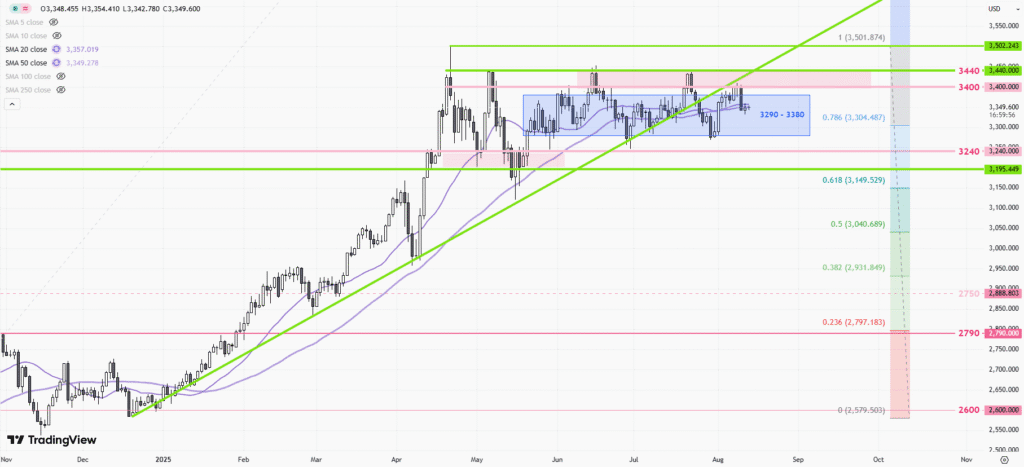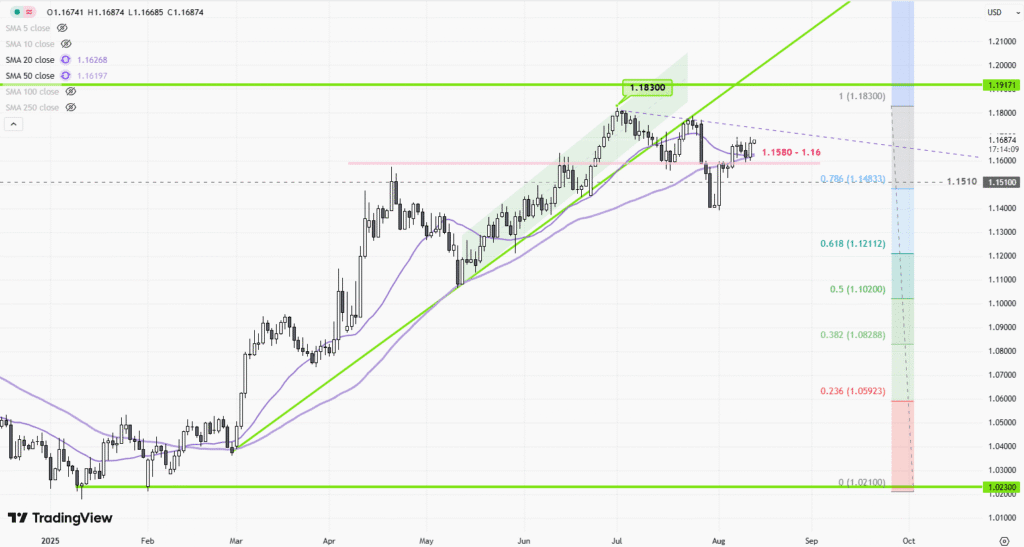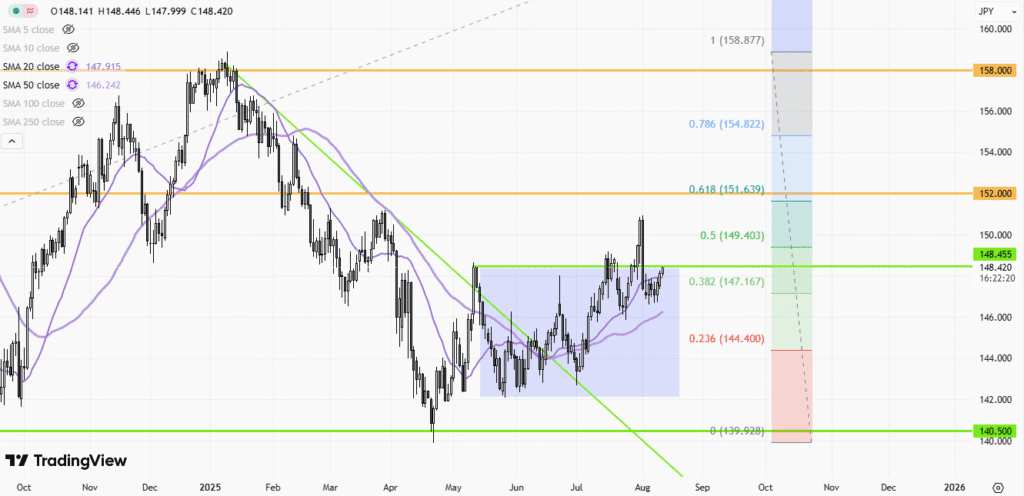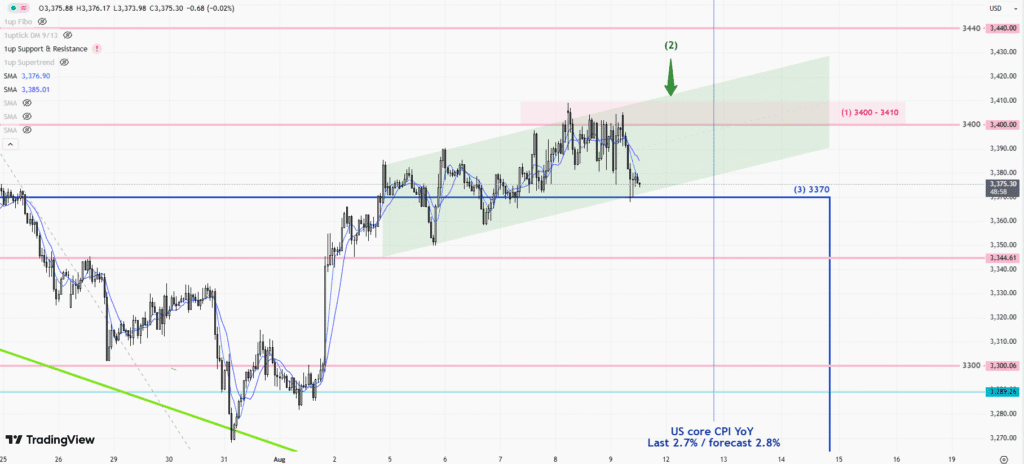 |
| Gold V.1.3.1 signal Telegram Channel (English) |

How Cathie Wood’s Long-Term AI Investment Strategy Identifies Disruptive Winners and Avoids Market Casualties
2025-08-13 @ 15:00
In recent years, the investment landscape has been transformed by the explosive rise of artificial intelligence (AI). While the AI revolution promises to reshape industries and unlock vast value, discerning investors must recognize that transformative innovations often create both winners and unexpected casualties. As capital floods into AI and related technologies, understanding the dynamics beneath the surface becomes more crucial than ever.
One of the more prominent voices steering this shift is Cathie Wood, founder of ARK Invest. Wood’s strategies center on what she calls “disruptive innovation”—the kind of breakthrough advancements with the potential to fundamentally alter how the world operates. Her approach isn’t about chasing the trend of the moment; rather, it’s focused on long-term conviction. Wood typically maintains a 7+ year investment horizon, seeking to identify transformative technologies and holding positions through market cycles.
Artificial intelligence sits at the core of this philosophy. Wood has bet big on AI, making it a leading sector in ARK’s flagship funds. Yet, what sets her strategy apart is the recognition that the AI opportunity extends well beyond the headlines and the usual suspects. While Nvidia, known for its leadership in AI chips and GPUs, has been on a meteoric run, Wood and her team are increasingly looking elsewhere. Their rationale: once dominant narratives become mainstream, markets often price in much of the anticipated growth, leaving less room for outsized gains.
Instead, ARK has started redirecting capital into companies that stand to benefit from the second and third waves of AI adoption. These include advanced software providers like Palantir, firms at the forefront of autonomous mobility such as Tesla, and enterprises leveraging AI in healthcare, genomics, and next-generation internet infrastructure. This strategy is rooted in the belief that, as AI becomes more integral to everything from drug development to industrial robotics, entire sectors will be reshaped and traditional business models upended.
But with every disruptive technology, there are casualties. The rise of AI has already started to make certain old-guard businesses—especially those slow to adapt—look increasingly vulnerable. Companies that once dominated with legacy software solutions, manual processes, or hardware-centric models are now facing existential risk as nimble competitors harness AI to deliver superior solutions faster and at lower cost.
Investors may be tempted to cling to these familiar names, hoping for a turnaround. Yet, history shows that technology waves can be unforgiving. For every new tech titan born, there is a long list of once-great companies that failed to pivot in time. The challenge is heightened in the age of AI: the pace of disruption is accelerating, compressing the time lag between innovation and obsolescence.
So how should forward-thinking investors position themselves? The key lies in identifying not only the enablers of AI—the chipmakers and cloud platforms—but also the next layer of beneficiaries. These include companies applying AI to automate manufacturing, optimize logistics, revolutionize medical diagnostics, and create new consumer experiences. As these applications scale, value creation will multiply across previously unrelated sectors.
Cathie Wood emphasizes the importance of diversification within the theme of disruptive innovation. Rather than putting all your eggs in one or two AI stocks, ARK’s funds spread exposure across a basket of sectors: autonomous technology, robotics, genomic revolution, fintech, and space exploration, to name a few. This approach recognizes that the contours of innovation are inherently unpredictable—today’s leader can easily become tomorrow’s laggard as new breakthroughs emerge.
Transparency is another pillar of the ARK strategy. By openly sharing research, portfolio holdings, and trade activity, ARK aims to build trust while fostering a collaborative approach to identifying future winners. This openness helps investors stay informed and adaptable in a rapidly evolving marketplace, where yesterday’s assumptions can quickly be overturned by new data or technological leaps.
In summary, the AI era calls for a new kind of investment mindset—one that embraces change, anticipates disruption, and is willing to both ride big winners and quickly exit potential casualties. For those willing to do the work and look beyond the obvious, the next decade could offer generational opportunities—but only if you’re prepared to rethink what constitutes a safe or promising investment in the age of intelligent machines.
Disruptive innovation is rarely comfortable. It requires shedding old habits, questioning conventional wisdom, and relentlessly seeking out the next frontier. In the dawning age of AI, the rewards will go to those with the courage to move early, the patience to endure volatility, and the foresight to recognize both the sacrifices and the opportunities of tomorrow’s technologies.








